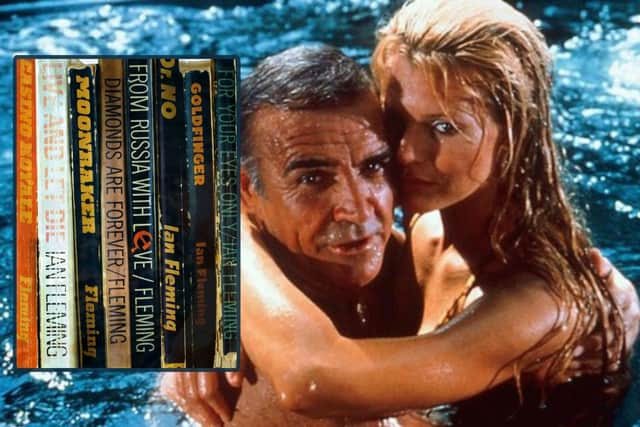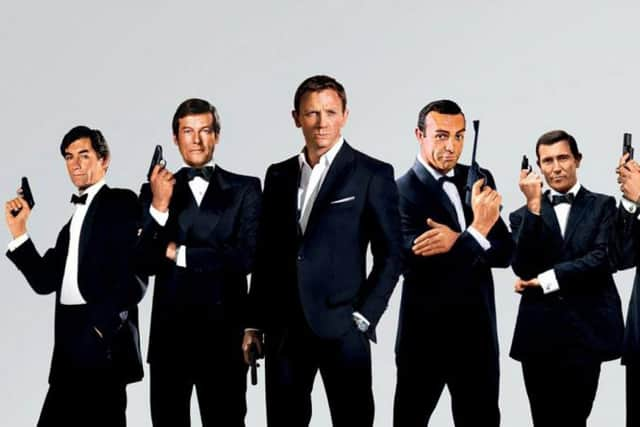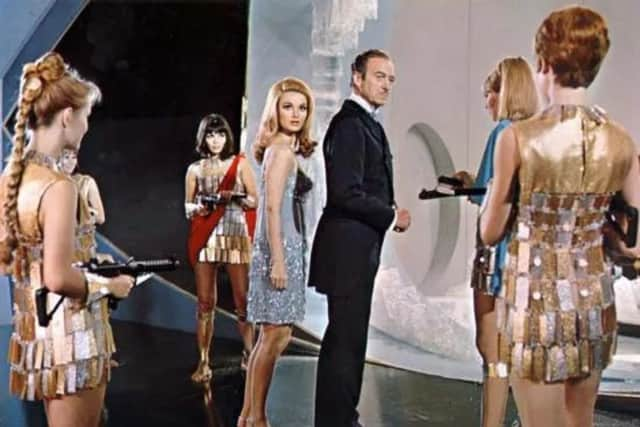James Bond film rights: who owns the franchise and how did non-Eon movies like Never Say Never Again get made?
and live on Freeview channel 276
James Bond is one of the most successful and recognisable British film franchises, second only to the Wizard World films of Harry Potter and Fantastic Beasts. The Bond movies are so big, that Eon Productions exists almost exclusively off the 25 spy movies it has made - since 1962 it has made only seven non-Bond movies.
But Eon is not the only party to have made money from the Bond films, as the company did not own the rights to all 14 of Ian Fleming’s Bond novels, and there is still one of his that they are not able to adapt.
Advertisement
Hide AdAdvertisement
Hide AdTwo non-Eon Bond films exist - they were both financially successful but vastly different projects. This is how other producers were able to take on Eon and the Bond game:


Who owns the James Bond film rights?
British film company Eon Productions owns the film rights to all of Ian Fleming's James Bond novels (with one caveat) but this wasn’t always the case.
In 1960 Albert Broccoli and Harry Saltzman formed Eon Productions in 1961, and acquired the rights to most of the James Bond novels - Saltzman sold his share of the franchise to United Artists in 1975, but Eon Productions is still owned by the Broccoli family - Albert’s daughter Angela Broccoli, and his stepson Michael G. Wilson are the current owners.
However, for decades, the company did not own the rights to Casino Royale, the first ever Bond novel. Agent and producer Charles K. Feldman gained the film rights to Casino Royale following the death of director Gregory Ratoff, who had himself purchased the rights from Fleming in 1955. Feldman adapted the book into a comedy in 1967.
Advertisement
Hide AdAdvertisement
Hide AdIn 1999 Eon finally gained the rights to Casino Royale, and the film marked Daniel Craig’s debut as Bond in 2006.


Additionally, in 1973, Eon’s rights to spy organisation Spectre and iconic Bond villain Ernst Blofeld expired - the producers were forced to come up with workarounds in later films, until in 2013 it was confirmed that they had regained the copyright for them both.
A final limit on the Eon that still exists concerns Fleming’s 10th Bond book, The Spy Who Loved Me. Fleming only granted rights to use the title of the novel, which Eon did in 1977, but would not allow the plot to be adapted.
This is because the story, which is the only Bond novel to be written in the first person, is told from the perspective of a Canadian woman, and Bond only appears two-thirds of the way through the narrative. Fleming did not like the novel and therefore would not grant permission for it to be adapted.
How were non-Eon James Bond films made?
Advertisement
Hide AdAdvertisement
Hide AdThere are two non-Eon James Bond films, the first to be made was Casino Royale in 1967, almost 40 years before the Daniel Craig version arrived in cinemas.
The film’s producer, Charles K. Feldman acquired the film rights in 1960, before the first Eon Bond film, Dr No, was made. Feldman planned to make Casino Royale as an Eon film but he couldn’t agree a deal with the franchise’s producers Albert Broccoli and Harry Saltzman.


By the time production on Casino Royale got under way in Ireland in 1966, Eon already had four James Bond films under its belt, and the franchise was proving popular. Instead of competing directly with these movies, Feldman made his version a spoof of the spy genre, casting Pink Panther star David Niven as the titular spy.
Despite problems with the budget, which ballooned to £12 million, quite a lot for a 1960s comedy, the film was a commercial success, earning around £33 million, and an Academy Award nomination for Best Song.
Advertisement
Hide AdAdvertisement
Hide AdThe other non-Eon Bond film is Never Say Never Again, released in 1983, which starred Sean Connery, who returned to the role of 007 12 years after his last Eon movie. The title is a reference to Connery stating that he would ‘never again’ play Bond back in 1971.
The film was distributed by Warner Bros. and was a remake of Thunderball, a 1965 Eon film which had also starred Connery. Fleming has based the Thunderball novel on an original story by Kevin McClory, who went on to direct the 1965 film.
McClory then retained the rights to the story, the character of Ernst Blofeld, and the criminal organisation Spectre, which featured in Never Say Never Again. The film was made for $36 million but made $160 million internationally, though it was outearned by Eon film Octopussy which made $183 million off a smaller budget earlier the same year.
Comment Guidelines
National World encourages reader discussion on our stories. User feedback, insights and back-and-forth exchanges add a rich layer of context to reporting. Please review our Community Guidelines before commenting.
